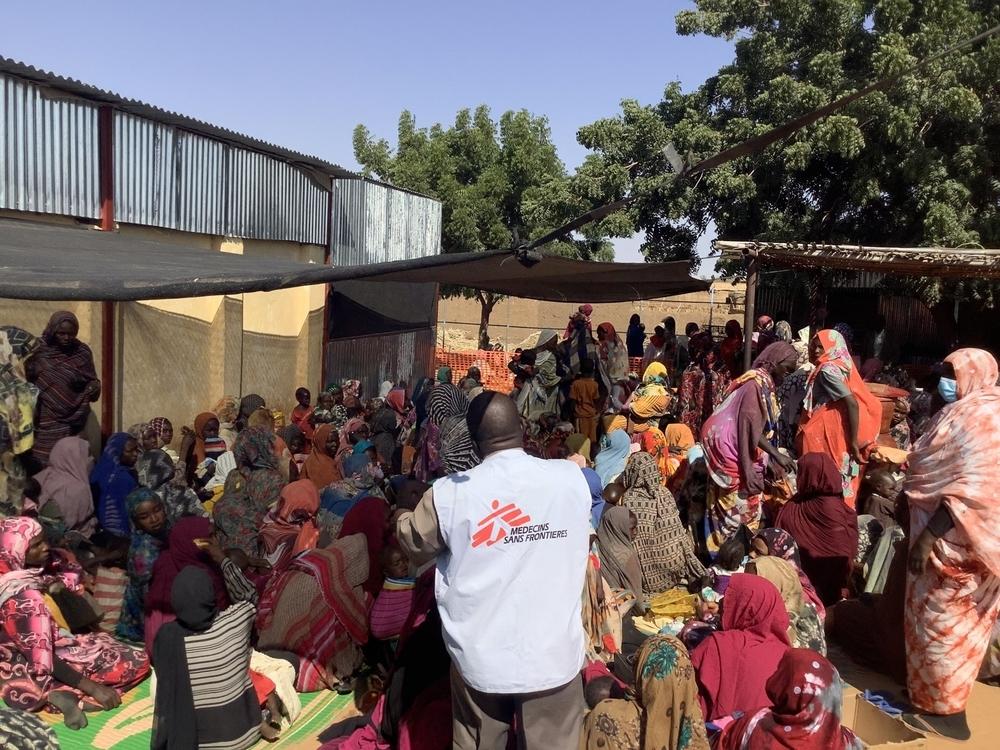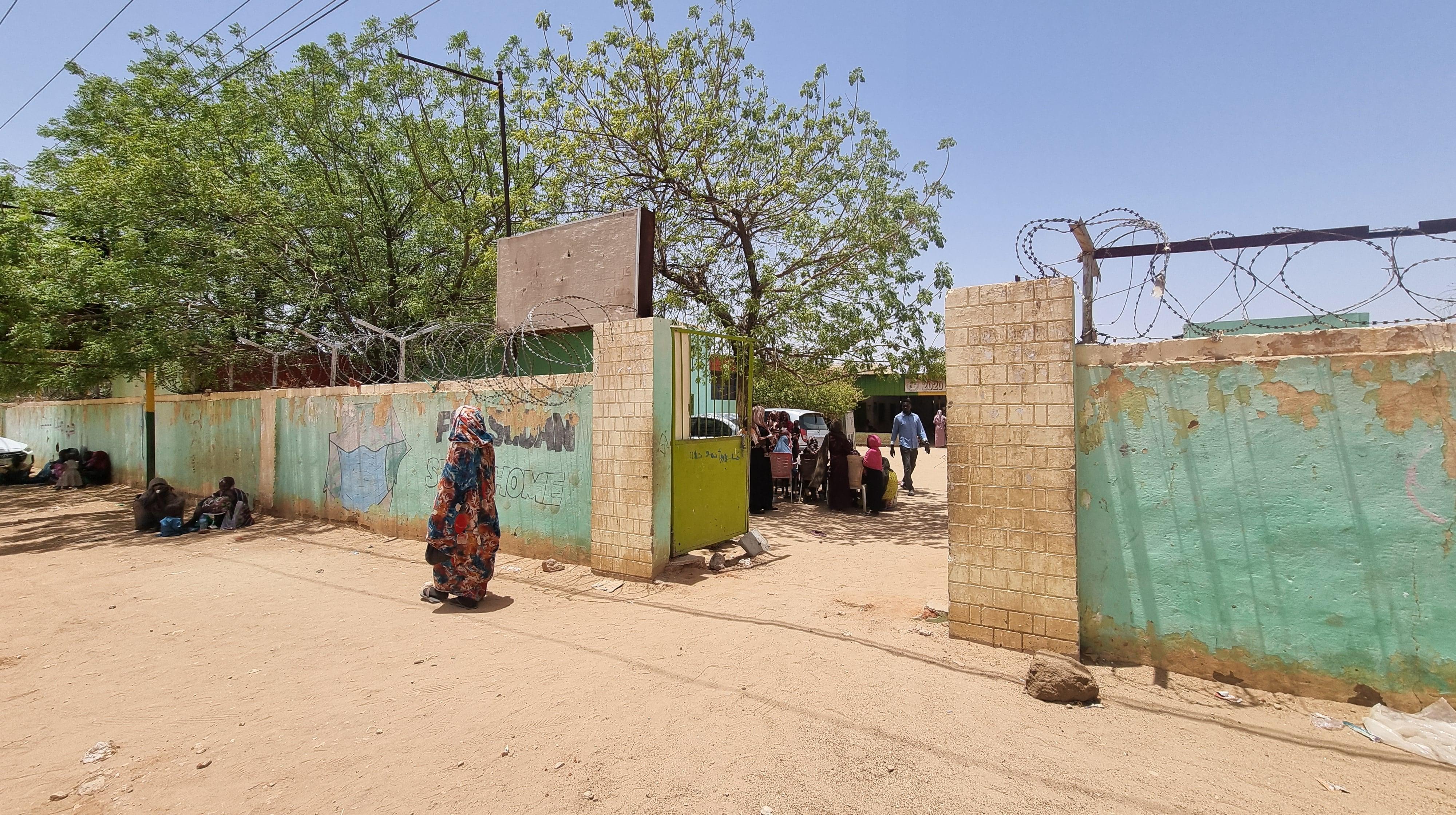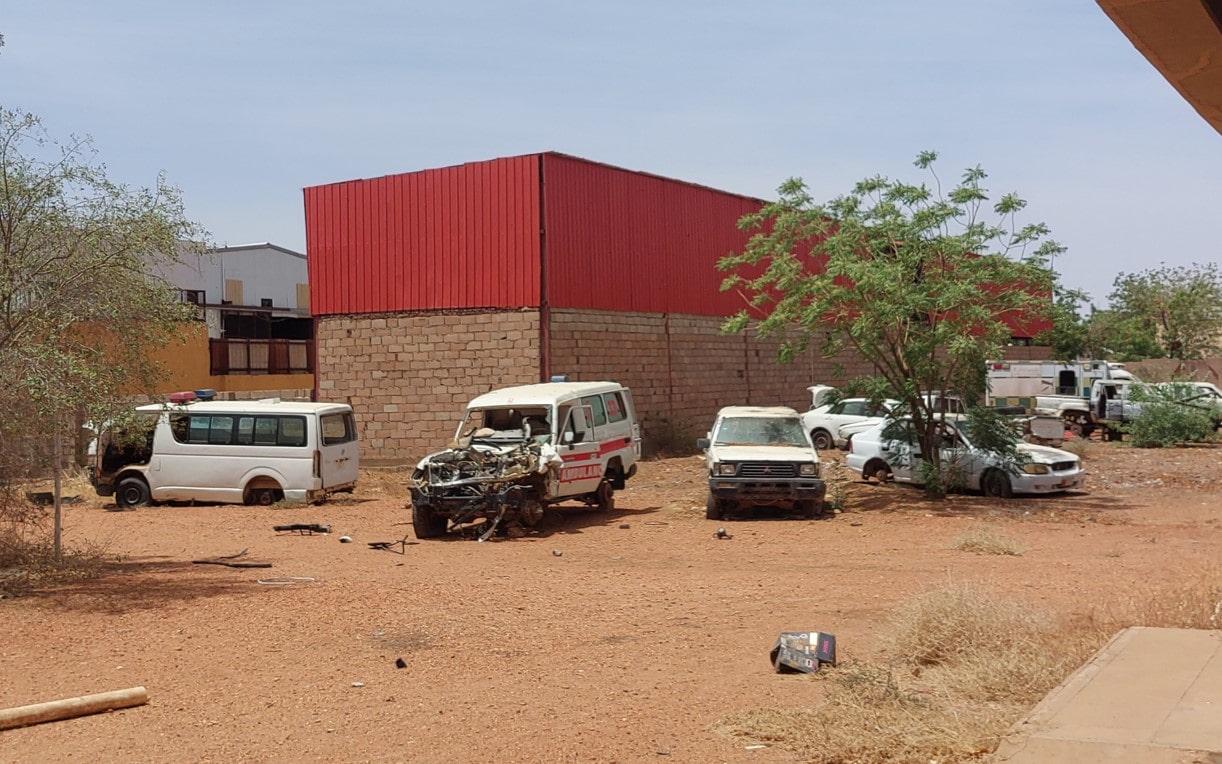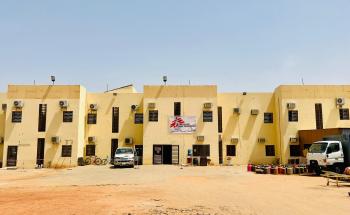What is happening in Zamzam Camp, North Darfur, Sudan?
A rapid nutrition and mortality assessment carried out by the medical humanitarian organisation Doctors Without Borders (MSF) reveals that a catastrophic situation has unfolded in Zamzam camp, North Darfur, since the conflict in Sudan began in April 2023. All emergency thresholds for malnutrition have been reached, and MSF is calling for an immediate, coordinated and rapid scale-up of the humanitarian response in order to save lives. The action of UN agencies and international NGOs – who have maintained only a limited presence in North Darfur since they evacuated in April – is vital for achieving this. Food and cash distributions are urgently required. Health care and water and sanitation provision are also vital.
Malnutrition in Zamzam camp, North Darfur, Sudan.
Almost a quarter of children screened during the assessment were found to be acutely malnourished, with seven per cent having severe acute malnutrition (SAM). Among children aged six months to two years old, the figures were even more stark, with nearly 40 per cent of this age group malnourished – 15 per cent with SAM. The emergency threshold for malnutrition, which indicates that urgent action must be taken, is 15 per cent – making it clear that a serious emergency situation is present in the Zamzam camp.
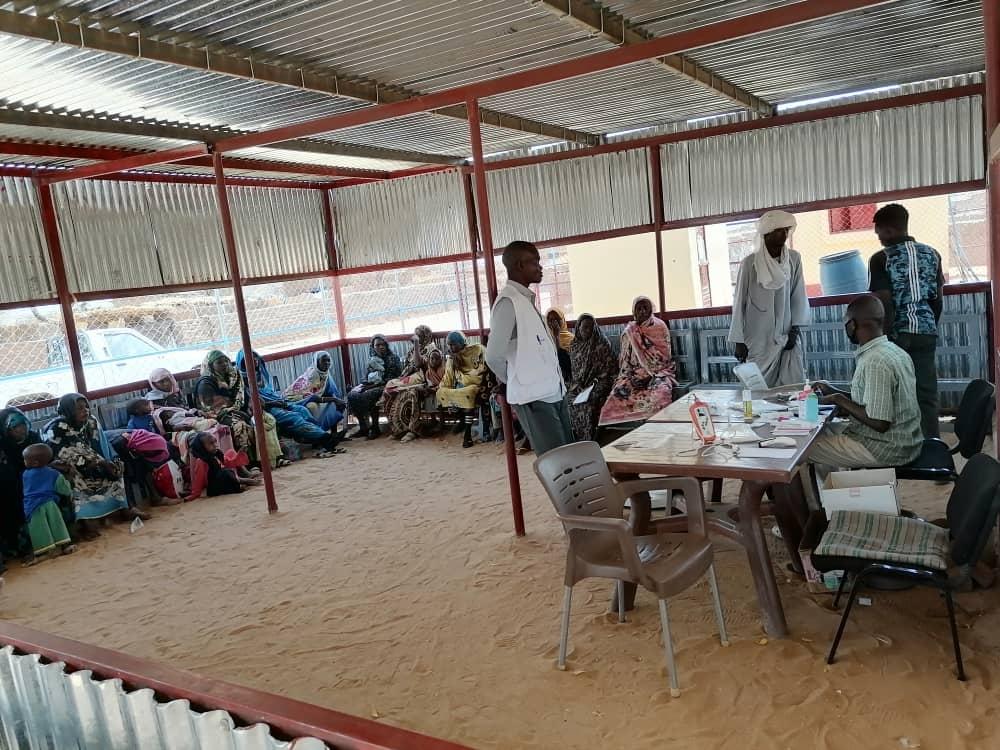
We estimate that at least one child is dying every two hours in the camp. Our current estimate is that there are around 13 child deaths each day.Claire Nicolet, head of MSF’s emergency response in Sudan.
Preventing death rates in Sudan
The total number of deaths in the camp per day was also cause for extreme alarm, with a crude mortality rate of 2.5 per 10,000 people per day – more than double the emergency threshold. 40 per cent of pregnant and breastfeeding women were also found to be malnourished – another indicator of the intense severity of the situation.
To prevent further imminent loss of life and to reduce the scale of suffering, MSF will rapidly increase its response in the camp to provide treatment for children in the most critical condition. However, the scale of the disaster requires a far greater response than MSF can provide alone.
“What we are seeing in Zamzam camp is an absolutely catastrophic situation,” says Claire Nicolet, head of MSF’s emergency response in Sudan. “We estimate that at least one child is dying every two hours in the camp. Our current estimate is that there are around 13 child deaths each day. Those with severe malnutrition who have not yet died are at high risk of dying within three to six weeks if they do not get treatment. Their condition is treatable if they can get to a health facility. But many cannot.”
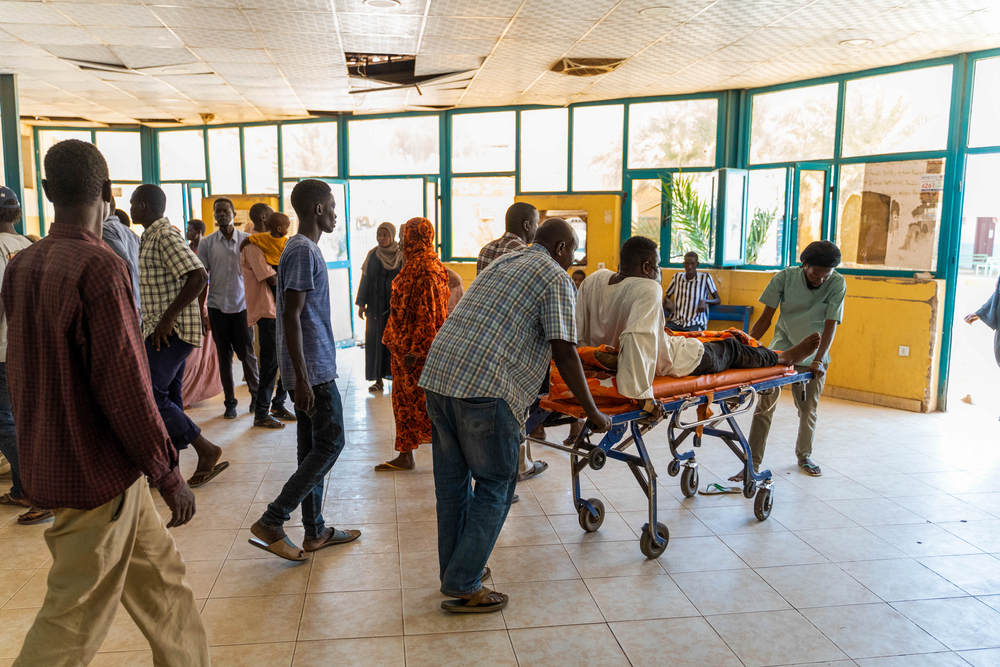
Sudan: Khartoum Surgical Team
Internally displaced people and humanitarian response in Sudan
MSF is the only operational health provider in Zamzam camp – one of the largest and oldest camps for internally displaced people in the whole of Sudan – and its small clinic is overwhelmed by the high number of patients and the severity of their clinical condition. Over the past nine months, North Darfur’s already fragile health system – and the entire humanitarian response – has collapsed, and the clinic is one of the few outpatient health centres in North Darfur that is fully functional. People travel by donkey or foot from villages up to 50km away from the camp to get access to health care, camping outside the clinic overnight because this is their only chance of getting treatment for their children.
“Before the start of the conflict in April last year, people in the camp were heavily reliant on international support for food, health care, clean water – everything. Now, they have been almost completely abandoned,” Nicolet explains. There have been no food distributions from WFP since May. When families used to eat two meals daily, now they tell us they eat only one. People are going hungry – and children are dying as a result.” Conditions in the camp are atrocious, and there is no health care; apart from the MSF clinic, there is also no clean water supply. People are drinking either from the swamps or from the river, which can cause severe diarrhoea. For children who are already malnourished, this can be fatal. Likewise, it can lead to malnutrition in healthy children and cause a rapid deterioration in their health.
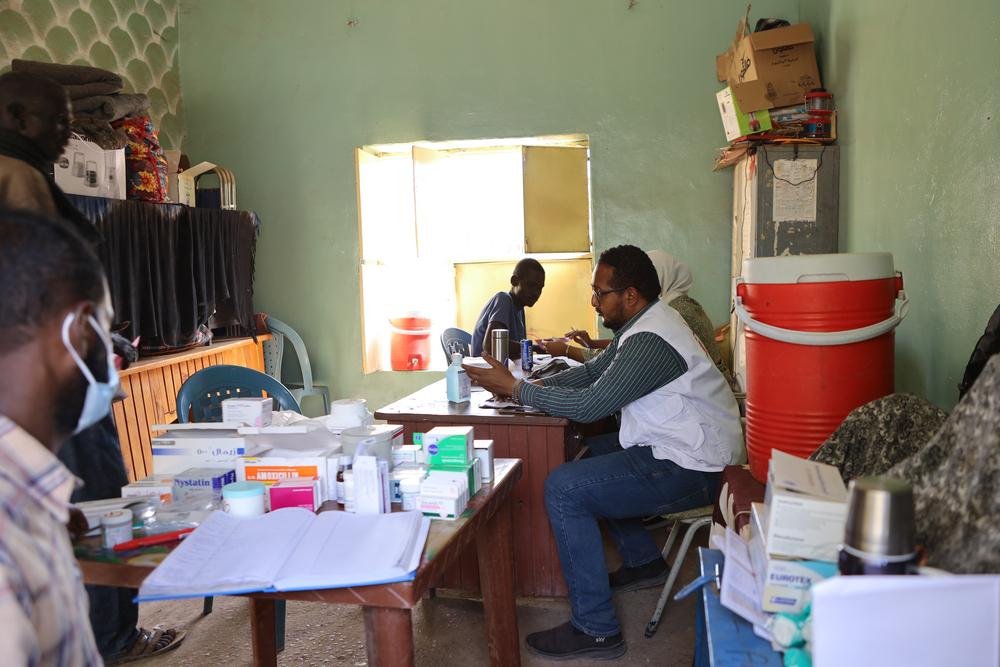
Food insecurity in Sudan
“There are many factors that have contributed to the high levels of malnutrition we are seeing. January is a time when malnutrition should be at its lowest, because December is when the harvest usually takes place meaning that stocks of food should be at their highest. But over the past year people have been unable to tend to their crops due to the insecurity, and on top of this, what little agricultural production that has been possible has been below average because of low rainfall. With the usual malnutrition peak yet to come – between April and September – we are expecting the already enormous number of cases we are seeing now to drastically increase over the coming months.”
Who is helping in Sudan?
Prior to April 2023, the health system in North Darfur was supported by the UN agencies WFP, UNICEF, IOM, and OCHA. This aid has now abruptly stopped, with road and air supply routes severely hampered. Staff no longer receive salaries, equipment and medicines are in short supply, as are fuel for generators, water and other supplies that are needed to keep health facilities running. Malnutrition programmes that were once present in El Fasher – the state capital – are non-existent. There is now nowhere in the city that people can go to for primary health care for their children. There is an urgent need for parties to the conflict to open the airport in El Fasher and to ensure it remains accessible once operational so that humanitarian actors can swiftly return and provide support to people not only in Zamzam camp but across North Darfur.
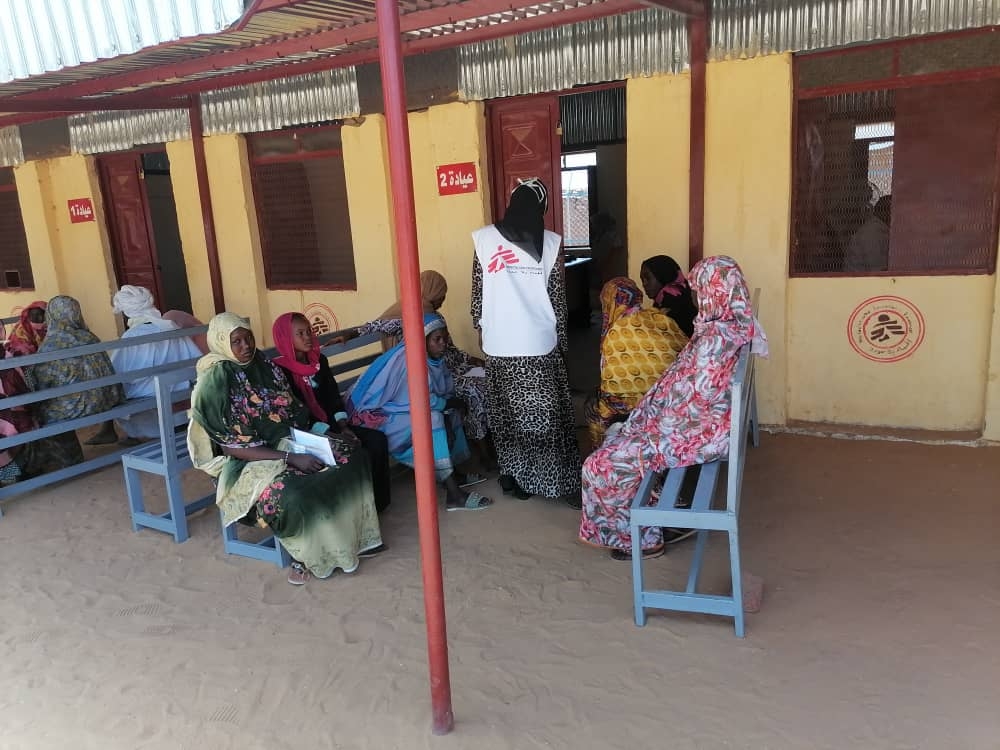
Malnutrition in Sudan
How is Doctors Without Borders helping in Sudan?
MSF is currently the only large international organisation providing free paediatric medical care across all five Darfur states– a region the size of France. The paediatric hospital has a total of just 78 beds for a population of over 11 million people – it is not enough to respond to the scale of this disaster.
“Referrals for patients from Zamzam camp to the paediatric hospital in El Fasher happen on a daily basis to try and save children’s lives,” Nicolet explains. “But we know from the mortality assessment that there are hundreds of children who do not even reach our clinic in the camp. It is possible to prevent the situation from deteriorating further through a massive mobilisation of the international community. We cannot sit by and let people continue to suffer in silence. The need for this scale-up is urgent – without it, the preventable deaths of even more children will occur.”
ENDS
